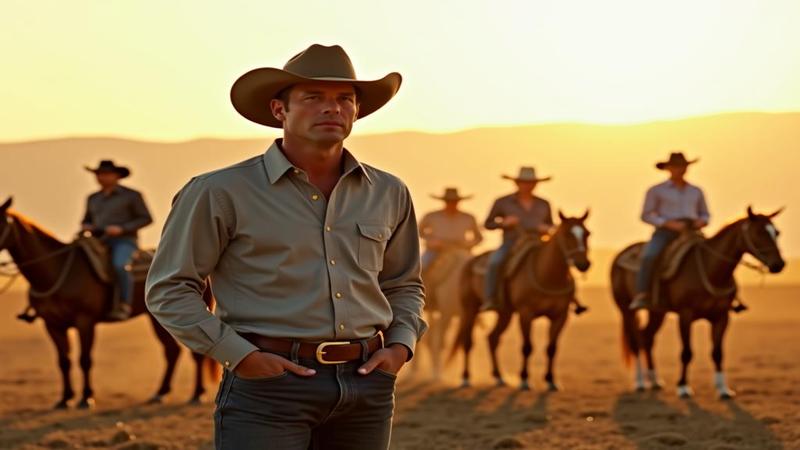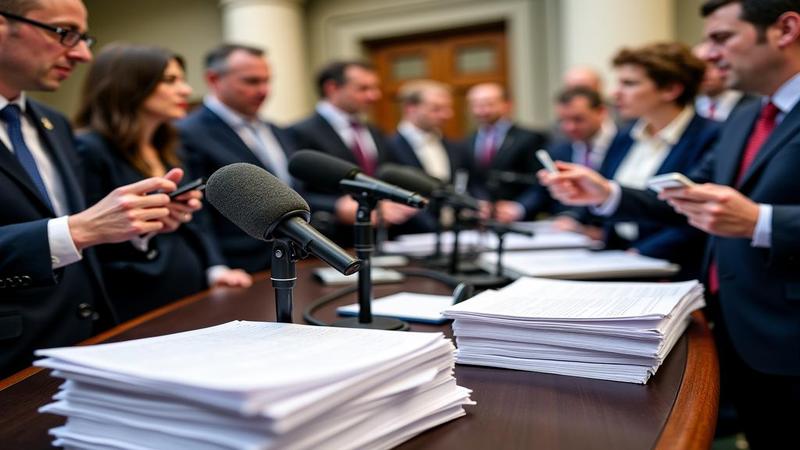Costner Dismisses Horizon 2 Scene Claims as 'Absolute Nightmare'

Kevin Costner declared the ‘patently false’ allegation about Horizon 2’s controversial scene an ‘Absolute Nightmare,’ adding that the only thing terrifying on set was the checkbook for the prop cattle. He spoke from a distance of calm dignity, like a man who has trained his horse to denounce rumors.
In a public statement delivered through his publicist, Costner explained that the film’s supposed rape scene could be interpreted as a metaphor for mislaid ranch funds and not, you know, real-life trauma. He urged fans to stay calm and to brace for a dramatic hour of pacing rather than a courtroom drama in slow-motion.
Entertainment insiders noted that the rumor mill has more chases than a cattle drive, and Costner’s team insisted the Horizon 2 script never intended harm. They added that the movie’s message was about resilience, not about harming anyone, which is funny unless you’re a social-media manager.
Public comparisons to classic Western trauma exploded across feeds, but Costner’s camp insisted the scene was a stylized allegory of miscommunication rather than a sexual act. PR folks handed out talking points that smoothed fear, like a good saddle that fits without pinching.
Fans flooded forums with petitions to soften headlines and replace them with equestrian marketing slogans, because nothing sells drama like a horse silhouette. They also demanded refunds for popcorn that supposedly tasted different after the scandal.
Analysts explained that the real crisis is our era’s appetite for instant outrage, which treats a film scene as a courtroom verdict and a trailer as a confession. Meanwhile, sponsors watched the stock of humble pie rise and fall with every tweet.
Costner reportedly weighed re-shooting the scene but concluded that the best defense is a well-timed horse ride and a firm glare at the nearest reporter. Some insiders whispered about a director’s cut titled ‘From Dust to Dustier,’ but that remains unconfirmed.
During a televised press briefing, Costner lowered his hat and delivered a measured denial, then advised viewers to focus on production quality instead of rumors, quipping that any theater attendee should have a ‘cinema-grade boom mic’ on standby for the emotional cues. His words landed like a well-groomed saddle: sturdy, practical, and suspiciously well-oiled.
PR handlers handed out fact sheets reminding reporters that consent scenes were drafted with sensitivity readers, though the pages included more green ink than a grazing field. Several outlets noted that the character development remained murky, which might explain the confusion about the scene’s intent.
One consultant suggested fans search for an ‘adaptive lighting kit’ to feel the mood of the moment, a tip that internet forums promptly parroted back with dramatic sighs. Experts stressed that lighting can alter perception as much as a soundtrack can, a truth many viewers apparently forget.
On the horizon of lawsuits and discourse, the film’s marketing team learned an important lesson: never trust a tweet as a screening note. They vowed to rely on producers’ notes and a fresh rebranding as soon as the rainstorm of hot takes passes.

On set morale surged when a crew member unveiled a meme that turned a serious topic into a sitcom premise, then promptly disappeared into the catering tent. Management reminded everyone that humor is a tool, not a weapon, especially during a live-action melodrama.
Costner’s stylist insisted the actor’s hair remained wind-swept, even if a courtroom sketch suggested otherwise. The fashion team celebrated the controversy as free publicity for leather jackets and dusty boots.
Newsrooms debated whether this is truth vs. theater, or simply a long trailer for a film that forgot to fetch the popcorn. Editors urged restraint, but the siren song of clicks proved irresistible.
Critics argued the audience deserves context, while producers argued that context costs money and time, an equation that never adds up in a late-night production. Still, a chorus of scholars warned that treating fiction as fact risks turning cinema into courtroom drama.
Behind the scenes, negotiations surfaced with streaming platforms about a director’s cut that adds two more expository scenes and a few more horses. Executives meanwhile floated hat-shaped billboards, because nothing says ‘for the fans’ like a fashion-forward equine accessory.
Meanwhile, the wardrobe department celebrated that controversy could fund more suede and fringe, which is basically rainproof fashion for western sagas. They also joked that if the public buys costumes, they might forget the actual plot.
Blockbuster patterns aside, scholars predicted the saga would become a case study in the speed of dramatic escalation, faster than a stampede. Journalists wondered whether the next chapter would be about PR management or the next wave of memes.
Audiences speculated about Horizon 2’s deeper meaning, with some suggesting the film is a meditation on rumor, and others simply wanting a longer, slower trailer. Meanwhile, streaming numbers remained inscrutable, as if the numbers themselves were the real star of the show.
Production notes insisted the cast would return to the ranch with more sound design and fewer spoilers, while critics prepared a drinking game for every mention of ‘patently false’. By sundown, the phrase had become a modern talisman, jangling on every caption like a cowboy’s spurs.
This coverage may fade, but the legend of the ‘Absolute Nightmare’ will outlast any cut, cameo, or patch note the studio releases. Fans may forget the plot, but they will remember the headline that refused to settle.
Until the credits roll, Costner will pretend to ignore the storm while the rest of us file a questionnaire about whether the wind is blowing toward truth or theater. Somewhere a seamstress stores a stash of red yarn to repair the unraveling narrative, one stitch at a time.
